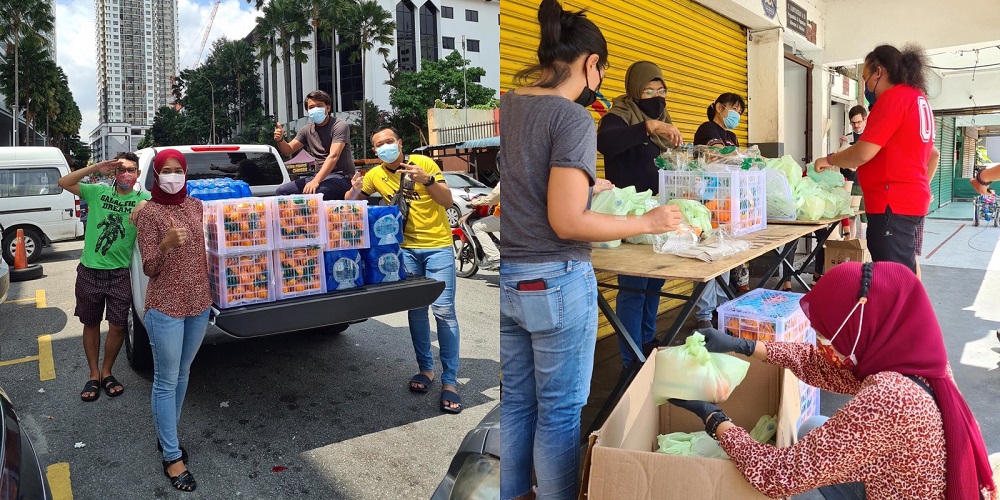KUALA LUMPUR, June 9 ― Soup kitchen workers tell about how the last two periods under the movement control order (MCO) saw much longer queues.
There were significantly more people who came for food or to seek shelter, many of them new faces.
“It was crowded during the MCO period. Those who came to us at that time were mixed, not all were homeless,” said Ezzuandi Ngadi, who runs Dapur Jalanan, a soup kitchen founded in 2013.
“Those with places to stay also come, living in rooms around Jalan Petaling, Pasar Seni but they don't have anything to eat because they’ve run out of money, they don't have work.”
Despite the government injecting nearly RM13 billion in wage subsidies meant to prevent mass layoffs, and billions more in federal aid, activists say help has somehow eluded many of the very people these programmes are meant to help.
What caused this is unclear, but activists point to poor access to information as a likely reason.
They said the affected are often unaware of the help they are eligible to receive… a result of deficient messaging campaigns?
Vulnerable communities tend to view community-run “kitchens” as more accessible than government welfare agencies, many of which make application for aid a very tedious process.
Elderly soup kitchen patrons, who find smartphones alienating, definitely find it hard to navigate through these applications.
Some are also too poor to own smartphones or cannot afford mobile internet.
“The problem with this community is ‘misinformation’ and so there is a digitalization gap. Most information is acquired via physical conversations. Vaccines, Bantuan Prihatin Rakyat or Bantuan Sara Hidup assistance and all… hard to reach them,” Ezzuandi said.
“Many are confused and misinformed causing them to fail to get assistance,” he added.
Government officials said the wage subsidies scheme has benefited 322,177 employers and 2.64 million employees to date.
Meanwhile, this year’s BPR cash transfers totalling RM2.75 billion would help 8.4 million recipients, over three million of them low-income households and individuals, and another million comprising the elderly.
But independent economists have argued that these numbers fail to account for the sizable number of informal workers who are excluded from the social security system, which the government relies on to disburse Covid-19 relief aid.

The size of informal employment, defined as employment without social protection, regardless of enterprise status, is estimated to be more than two times what it was in 2011, around 16.8 per cent of total employment or 2.5 million in 2019.
Unemployment jumped to around 800,000 people by May last year at the tail end of the first MCO, the highest since the Asian Financial Crisis. As of April this year, the rate nearly halved although still not at pre-pandemic levels.
Community-based welfare centres told Malay Mail that more of these workers, furloughed by the lockdown, had turned up at their shelters during the last two MCOs, appealing either for food or cash to help pay rent arrears.
And as the country undergoes a third MCO, there is anticipation that they would return.
“You have to understand that not all of them are homeless, many who come actually have jobs,” said Datuk Munirah Hamid, who oversees Pertiwi Soup Kitchen, a privately-run organisation that feeds, shelters and helps economically vulnerable people find jobs.
“Many of them have jobs but because of the MCO they can’t earn, so they would come and ask for cash because they need help to pay rent. During the two MCOs there were many of them but when it was lifted, many didn’t come back because they found jobs,” she said.
“We don’t know about the third MCO yet... they could come back.”
These local “precariats”, a portmanteau of the words "proletariat" and "precarious", now join migrant workers, refugees, asylum seekers and stateless persons who have long fallen through the cracks.
Mahi Ramakrishnan, Beyond Borders Malaysia founder, said these “invisible” communities, having long suffered from state exclusion, also face the constant threat of arrests and extortion by enforcement officers, forcing many to avoid working and go into hiding.
There are some 178,920 refugees and asylum-seekers registered with UNHCR in Malaysia as of March 2021, and nearly all rely on daily or weekly-paid informal work to survive. Malaysia does not recognise refugees and prohibits them from employment.
“The aid doesn’t include migrants and refugees. So they will remain the worst-affected by this pandemic,” said Mahi.
“NGOs have been helping but there is only so much that we can do… without political will from the government, refugees and migrants will continue to struggle to put food on the table, make rent or access affordable healthcare. And that’s a shame.”



















